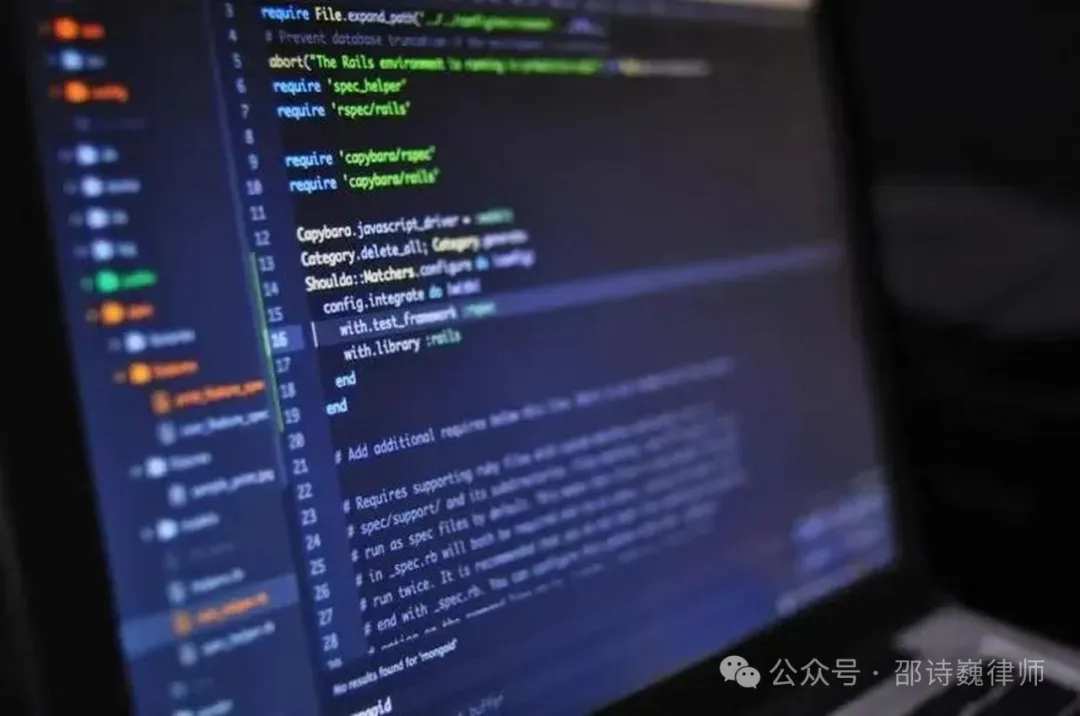
在很多人眼中,程序员(码农、工程师)是收入丰厚,令人羡慕的高薪岗位,但在刑事律师眼中,这也是极易触碰法律风险的高危行业。
邵律师此前也代理过不少程序员涉嫌刑事犯罪的案件:
公司经营行为涉嫌侵犯著作权罪,程序员作为员工被牵连;
软件公司为客户提供非法网站搭建服务,公司法人涉嫌帮信罪;
境外虚拟货币交易所涉嫌开设赌场罪,程序员作为境内员工被抓;
……
北京市昌平区人民法院日前发布一则案例——员工利用职务之便获取虚拟货币牟利,构成非法获取计算机信息系统数据罪,获刑3年半。本文以该案为例,就相关法律问题进行分析。
作者 |邵诗巍律师
01
案情简介
张某,曾是某网络公司的区块链工程师,负责公司区块链项目的开发工作,2020 年 7 月参与公司项目期间,得知项目账户内存有大量以太坊。于是张某借工作之便,以“代码学习”为由,向同事索要超出其工作权限范围的程序代码和私钥。
据张某称,他曾加入某“技术交流群”,将代码和私钥分享至该群,邀请群成员Jack破解代码并攻击公司账户,获取 106.15 个以太坊。此后,张某将获得的以太坊进行“洗币”操作,将以太坊换算成其他形式货币后,通过多个账户转移,再转回其本人账户。
公司发现账户虚拟货币被盗后迅速报案。张某辩称:自己只是在“技术交流群”分享代码地址和项目信息,以太坊是他人通过扫描私钥转走的,而且其中18个以太坊是Jack给自己的,作为分享代码等信息的劳动所得。
北京昌平法院认为,张某违反规定,向他人索要程序代码和私钥,非法获取公司计算机系统中以太坊信息,并将部分以太坊交易获利,并在没有权限的情况下,非法获取存储在计算机系统中以计算机数据形式存在的虚拟货币信息,其行为已经构成非法获取计算机信息系统数据罪。
经核算,张某共非法获利人民币 38329.76 元。法院以张某犯非法获取计算机信息系统数据罪,判处有期徒刑三年六个月。
02
律师评析
1、虚拟货币交易不是不受法律保护吗?
本案张某被抓后辩称,“公司开发的某项目本身属于风险交易,应当风险自担”。
“虚拟货币交易不受法律保护、风险自担”这是一句我们经常在虚拟货币民事纠纷案件中看到的法院观点。因交易不受保护,因此双方签订的合同、委托事宜无效,法院会因此判决原被告双方承担相应的责任。
所以张某这话,倒也没错。但为什么没有被法院采纳呢?
这就是在当前涉币类案件司法实践当中,刑事案件和民事案件对于虚拟货币的“区别对待”了。
民事案件中,例如借贷、委托投资、挖矿等,目前法院的判决有点“躺平”的风格,对双方各打五十大板,自担风险。目的是让人意识到:在我国,不鼓励虚拟货币交易。
但如果虚拟货币被盗窃,达到了相关罪名的刑事立案标准,根据邵律师接到的咨询及所办理的案件情况来看,随着司法机关对虚拟货币的认识也在不断的加深,被害人报案情况来看,各地公安立案的数量也在不断增多。由此也能看到,刑事案件当中,虚拟货币的财产属性是被司法机关认可、被保护的。
2、为什么定非法获取计算机信息系统数据罪?
接着上文说,既然虚拟货币的财产属性是被司法机关认可的,那为什么本案会定非法获取计算机信息系统数据罪?——这其实有点矛盾,也有点微妙。
定计算机犯罪的逻辑在于,即便客观上比特币、以太坊、泰达币等虚拟货币能换成钱,具有财产属性,是被司法机关认可的,但法院在判决时却在极力避开关于虚拟货币具有价值的讨论,而是换个视角:
以虚拟货币具有数据属性(依据算力产生)的角度,认为虚拟货币属于计算机类犯罪所保护的对象。但是,根据以下两高司法解释规定,获取计算机信息系统的数据应当为“身份认证信息”,例如账号、密码、数字证书等。虚拟货币所具有的数据属性,显然并不包括在前述范围内。
两高《关于办理危害计算机信息系统安全刑事案件应用法律若干问题的解释》(2011年)
第一条 非法获取计算机信息系统数据或者非法控制计算机信息系统,具有下列情形之一的,应当认定为刑法第二百八十五条第二款规定的“情节严重”:
(一)获取支付结算、证券交易、期货交易等网络金融服务的身份认证信息十组以上的;
(二)获取第(一)项以外的身份认证信息五百组以上的;
(三)非法控制计算机信息系统二十台以上的;
(四)违法所得五千元以上或者造成经济损失一万元以上的;
(五)其他情节严重的情形。
矛盾的是,虽说在法院说理及判决时,刻意避开有关虚拟货币价值的论证,但对于当事人的量刑,却又不可避免的对虚拟货币进行定价(本案当中,张某获利18个以太坊,根据案发时2020 年 7 月的币价,认定张某非法获利3.8万余元),并以定价金额为标准,对被告人量刑。
03
邵诗巍律师提示:
回到文首所提到的,为什么说程序员属于“高危行业”呢?
现如今网络犯罪猖獗,每一个涉案平台,例如赌博网站、涉赌游戏、诈骗平台、色情软件等都少不了一堆网站开发、运维人员在背后做着技术支持工作。这需要程序员在对所服务的平台,有一定的辨识能力。
在为合法合规提供服务时,程序员所面临的法律风险往往来源于监守自盗(正如本案),如利用公司系统存在的漏洞、利用自身或工作的便利等方式,窃取公司财物。因此,程序员要守住职业底线,增强法律意识和道德责任感,避免从事任何形式的违法活动。






